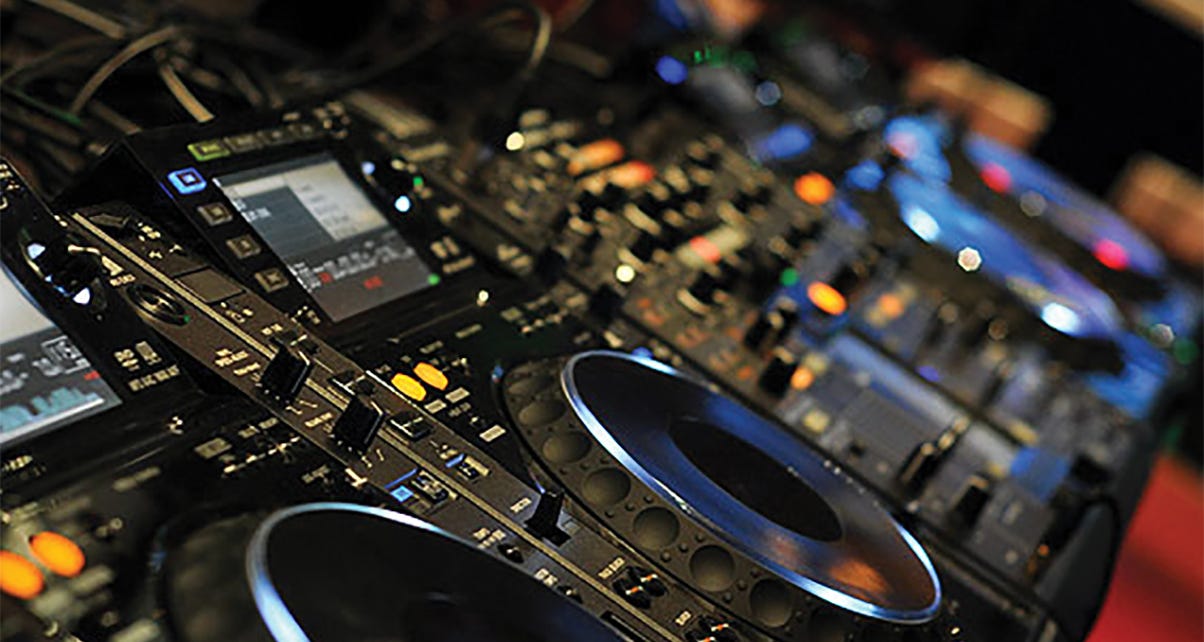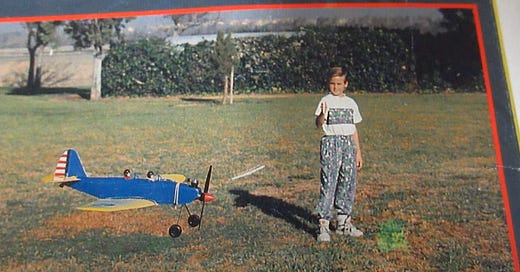
James Friedman (JF) is an award winning strategist and longtime DJ. His record label, Throne of Blood, helped introduce global dance floors to artists like Daniel Avery and Bicep.
James here. If you saw anything online about Grimes' disastrous Coachella performance, you are at least aware that DJing isn’t what it used to be. What used to be achieved using little more than a crate of records now involves a lot of digital technology.
The classic configuration of two turntables and a mixer has been augmented with digital tools, including laptops, controllers, and digital players known as CDJs—even though the current models can't even play a compact disc.
All of this technology has transformed DJing. While professional-grade kit is blindingly expensive, the proliferation of inexpensive technology and free software has made mixing accessible to thousands, if not millions of folks who could not have participated in the craft with vinyl records alone. Additionally, technologies like CDJs give users granular control over the sounds they spin, from adjusting their tempo and key, to creating and triggering loops, samples, and digital effects. DJ booths have become miniature studios, and DJs are now live producers, remixing recordings on the fly. From a pure capabilities standpoint, this is the golden age of DJing.
Why is this interesting?
Because even if you don't believe that God is a DJ, the advent of the CDJ says something about creativity more broadly.
I've spent several decades as a DJ. I made a good living throughout my 20s and 30s playing in clubs. Several nights a week I was conducting dancefloors in New York, with regular trips to LA, Mexico, and Europe for gigs. But middle age, parenthood, and Covid conspired to end my run as something more than a hobbyist greybeard in a young person's game. I still love mixing records, but all of the promise and potential of digital technologies like CDJs are a turnoff for me – though not for the puritanical reasons many old schoolers cite while whining about the state of DJing in 2024.
For a long time, I embraced the innovations. I used booklets of CDs full of unreleased music and exclusives other DJs could not yet purchase on vinyl. I used industry-standard DJ tech like Serato and Traktor. Beginning with a gig at famed London nightclub Fabric in 2012, I also started using flash drives packed with gigabytes of music. With little more than a USB key and a pair of standard issue CDJs, I could meet virtually any crowd's needs, pulling up the perfect file to send the dance floor into ecstasy.
But for the past five or six years, I have returned to using only vinyl. Not because it sounds better or because analog is cooler, or because I'm signaling the decades of time I've spent amassing a record collection of obscurities. I’ve gone back because I believe that the essence of creative mixing is not the limitless palette of options afforded by all this tech. The magic is in the constraint of having to make a few dozen 12" records in a bag into a coherent and transportive experience for the audience. Relying on vinyl demands that I be somewhat intentional about what I am bringing to the function. It requires me to make critical decisions about what I hope to say and how I will do it upfront and in advance.
An all-vinyl DJ set can still be responsive to the ebbs and flows of energy communicated by the dancefloor. But it can't be anything or everything. The limitations imposed by the size and weight of a record bag force something that feels like alchemy: turning a limited supply of songs into the right thing at the right time. Steve Jobs once said that "Creativity is just connecting things." For me this is most exciting when the catalog of "things" to connect is constrained to the contents of a record bag and the knobs of a DJ mixer. (JF)
—
Thanks for reading,
Noah (NRB) & Colin (CJN) & James (JF)
—
Why is this interesting? is a daily email from Noah Brier & Colin Nagy (and friends!) with editing help from Louis Cheslaw about interesting things. If you’ve enjoyed this edition, please consider forwarding it to a friend. If you’re reading it for the first time, consider subscribing.
















Not too long ago, I popped by Eli's new club where he was DJing vinyl. He played a track from the early '80s—I think it was Kraftwerk, which sounded amazing and bassy in the middle of the dance floor. I had a feeling sweep over me as I realized how many people had heard that exact piece of music, all the places around the world Eli had taken that exact piece of vinyl and how many people had experienced it. That was a deeply spiritual moment for me.
In 2024, it's not just DJs -- most of us work digitally almost all the time, and something is lost in the instant replication of files. A meme can spread like wildfire, but it doesn't compare to the literal feeling of passing a physical book among friends, where you can feel the energy of how the book was interpreted and handled by others.
Really interesting post, thanks James! As someone who’s only dabbled with DJing in vinyl format, the possibilities of today’s kit are pretty mind-blowing. But I like your rationale for switching back to all-vinyl sets. I think as humans we are better programmed to curate and consume something finite - whether that’s a book or a bag of records - than we are at dealing with almost infinite possibilities. It’s why you can always find something to listen to in a box of records but often wonder what to pull up on Spotify... Paradox of choice I guess. Must be even harder to deal with for a DJ!